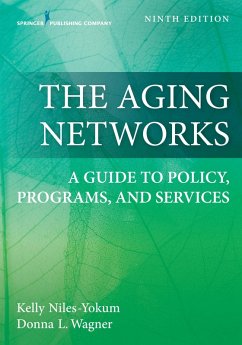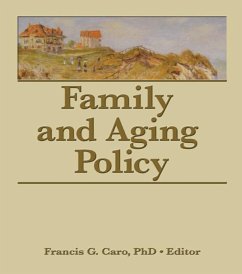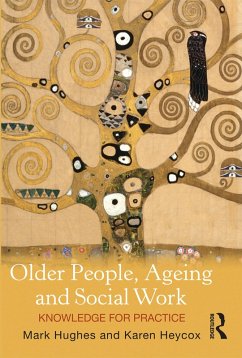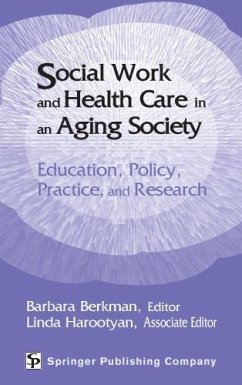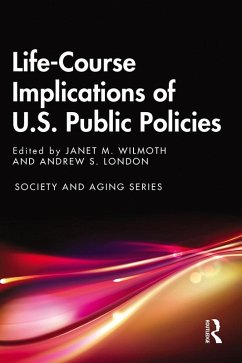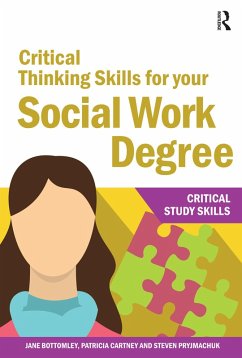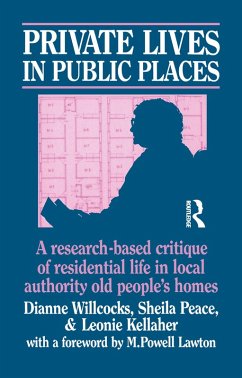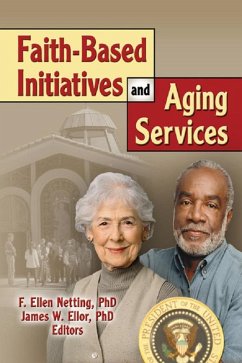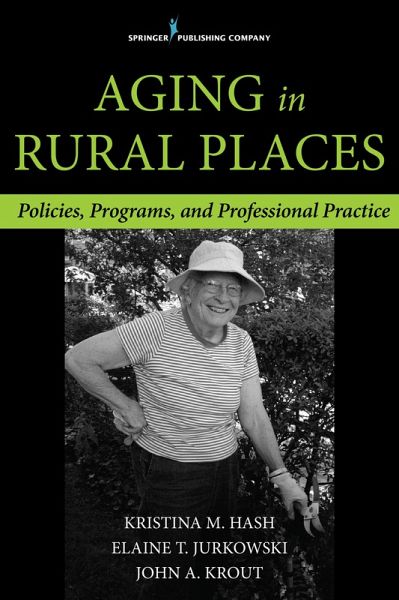
Aging in Rural Places (eBook, ePUB)
Programs, Policies, and Professional Practice
Redaktion: Hash, Kristina M.; Krout, John A.; Jurkowski, Elaine

PAYBACK Punkte
27 °P sammeln!
Research documents that rural elders are poorer, live in less adequate housing, and have far fewer health and service options available to them than their urban counterparts, yet there is a critical lack of current and detailed information on the problems facing rural elders and on the professional practices that serve this population. This text fills this gap by introducing readers to rural areas and their residents and discussing the issues, programs, and policies designed to meet their needs. Through a multidisciplinary lens, it examines and defines specific competencies required for succes...
Research documents that rural elders are poorer, live in less adequate housing, and have far fewer health and service options available to them than their urban counterparts, yet there is a critical lack of current and detailed information on the problems facing rural elders and on the professional practices that serve this population. This text fills this gap by introducing readers to rural areas and their residents and discussing the issues, programs, and policies designed to meet their needs. Through a multidisciplinary lens, it examines and defines specific competencies required for successful work with older adults and their families in these communities.
The text presents a research-driven, competency-based approach for the health and human service professionals who work with older rural residents. It discusses both the problems facing older adults and their families and evidence-based solutions regarding policy and best practices. Key issues examined include health and wellness, transportation, housing, long-term care, income, employment, and retirement, along with the needs of special populations (ethnic minorities, immigrants, and the LGBT population). Case examples reinforce an interdisciplinary model that addresses practice with rural elders that encompasses professional competencies, values and ethics, and the roles of a spectrum of health and human service professionals. The text also examines current policies affecting health and social services to rural elders and recommendations for policy change to build an effective health and human service workforce in rural communities. In addition, the text provides discussion questions, PowerPoint slides, a test question bank, and suggested activities and exercises.
Key Features:
The text presents a research-driven, competency-based approach for the health and human service professionals who work with older rural residents. It discusses both the problems facing older adults and their families and evidence-based solutions regarding policy and best practices. Key issues examined include health and wellness, transportation, housing, long-term care, income, employment, and retirement, along with the needs of special populations (ethnic minorities, immigrants, and the LGBT population). Case examples reinforce an interdisciplinary model that addresses practice with rural elders that encompasses professional competencies, values and ethics, and the roles of a spectrum of health and human service professionals. The text also examines current policies affecting health and social services to rural elders and recommendations for policy change to build an effective health and human service workforce in rural communities. In addition, the text provides discussion questions, PowerPoint slides, a test question bank, and suggested activities and exercises.
Key Features:
- Fills a vacuum regarding information on health and social services for rural elders
- Provides current and comprehensive knowledge about issues besetting this population and programs and policies designed to meet their needs
- Examines and defines specific competencies required for effective health and social services
- Based on a research-driven, competency-based, interdisciplinary approach to policy and best practice
Dieser Download kann aus rechtlichen Gründen nur mit Rechnungsadresse in A, D ausgeliefert werden.





